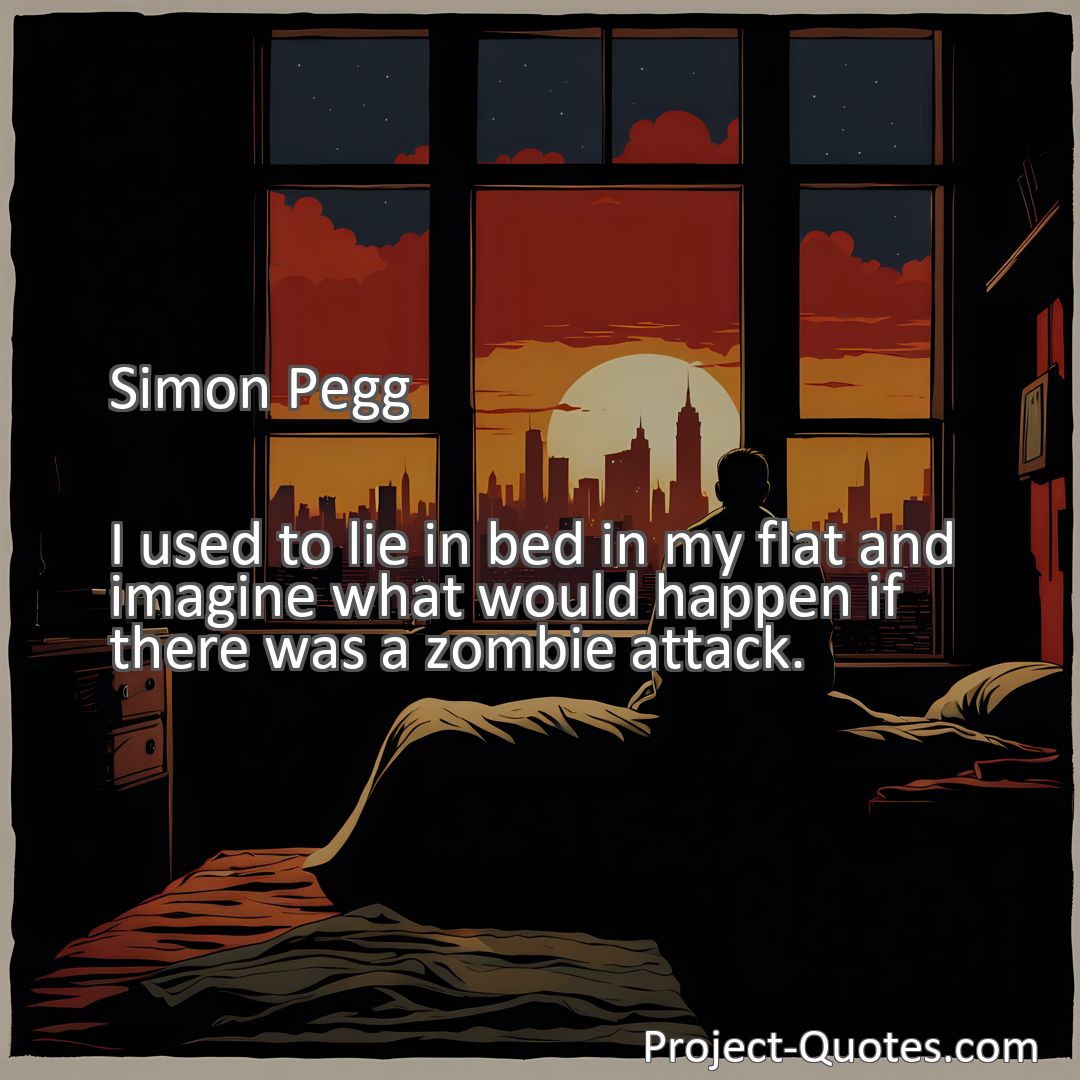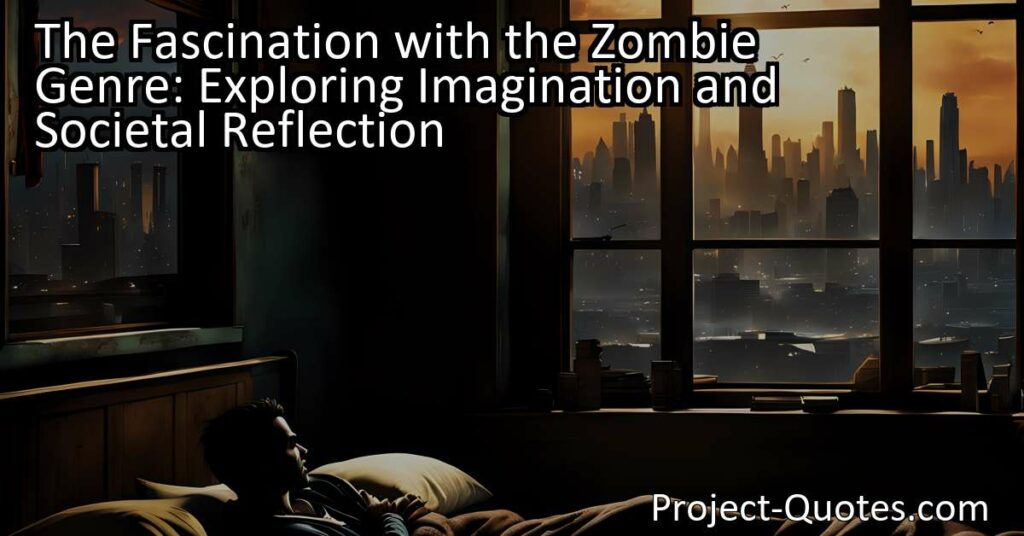I used to lie in bed in my flat and imagine what would happen if there was a zombie attack.
Simon Pegg
The fascination with the zombie genre lies in its ability to tap into our deepest fears and explore the limits of our own resilience. While it may be seen as mere escapism, the zombie genre serves as a cautionary tale, urging us to appreciate the comforts and securities of our everyday lives. It also provides a platform for critical reflection on societal concerns and anxieties, presenting issues such as mindless conformity, pandemics, and climate change in an exaggerated context. Ultimately, the zombie genre allows us to engage in a communal experience, connecting with others through a shared fascination and curiosity.
Table of Contents
Meaning of Quote – I used to lie in bed in my flat and imagine what would happen if there was a zombie attack.
Imagine lying in bed in your cozy flat, cushions propped up behind you, as you allow your mind to wander into the realm of imagination. You contemplate what would unfold if a zombie attack were to suddenly erupt, transforming the world as we know it. This intriguing thought experiment is precisely what Simon Pegg, the well-known British actor, writer, and comedian, admitted to pondering during his quieter moments.
Pegg’s fascination with the concept of a zombie apocalypse is not uncommon. Many of us have found ourselves caught up in similar musings, where our imagination runs wild with apocalyptic scenarios. Whether it’s the thrill of the unknown, the adrenaline rush of survival, or the appeal of starting anew in a post-apocalyptic world, zombie-related fantasies have captivated the minds of millions.
The allure of the zombie genre lies in its ability to tap into our deepest fears while allowing us to explore the limits of our own resilience. It presents a world where the very notion of safety and civilization is obliterated, paving the way for a raw, survival-of-the-fittest existence. As Pegg himself experienced, it can be fascinating to contemplate how we would navigate such a treacherous landscape and what kind of hero or survivor we might become.
While some may dismiss the fantasy of a zombie attack as mere escapism, there is an underlying message that resonates with many. The idea of a world on the brink of collapse forces us to confront our own mortality and question the fragility of the society we so often take for granted. In a way, it serves as a cautionary tale, urging us to appreciate the comforts and securities of our everyday lives.
Moreover, the zombie genre has evolved into a metaphor for various societal concerns and anxieties. It sheds light on the dangers of mindless conformity, the potential devastation of a pandemic, or even the looming threat of climate change. By presenting these issues in the exaggerated context of a zombie attack, storytellers like Pegg provide a platform for critical reflection and discourse.
Beyond the social commentary, the zombie genre has become a rich tapestry for storytelling. Whether it’s through movies, television shows, or books, writers and filmmakers have used the zombie motif to craft compelling narratives filled with action, suspense, and often deep introspection. These stories explore the complexities of human nature when faced with extreme circumstances. They force us to question our own moral compass, as characters are pushed to their limits and must make life-or-death decisions.
Pegg’s curiosity about a zombie attack also speaks to the power of our collective imagination. Humans have always been storytellers, using tales of adversity and heroism to make sense of the world around us. Zombie narratives allow us to engage in a communal experience, where we can share in the thrills and chills, even from the safety of our own homes. In this way, imagining a zombie attack becomes a way to connect with others, united by a shared fascination and curiosity.
Yet, it is essential to remember that the zombie genre remains firmly within the realm of fiction. While the thought experiment can be entertaining and even thought-provoking, it is crucial not to let it overshadow reality. As Pegg himself pointed out, “I worried for about 30 seconds that if I laid still, they might come to the door and I wouldn’t be able to out-manoeuvre them. This humorous acknowledgement reminds us that our fascination with zombies should never consume us to the point of actual paranoia.
In the end, contemplating the possibility of a zombie attack is a testament to the potency of creativity, human curiosity, and our drive to explore the unknown. Simon Pegg’s open admission of his own musings allows us to reflect on the broader appeal of the genre while celebrating the power of imagination. Though zombies may only exist on the pages and screens of our entertainment, they continue to captivate and engage us, opening the doors to endless possibilities and echoing the timeless human desire for adventure and survival.
I hope this quote inspired image brings you hope and peace. Share it with someone who needs it today!


